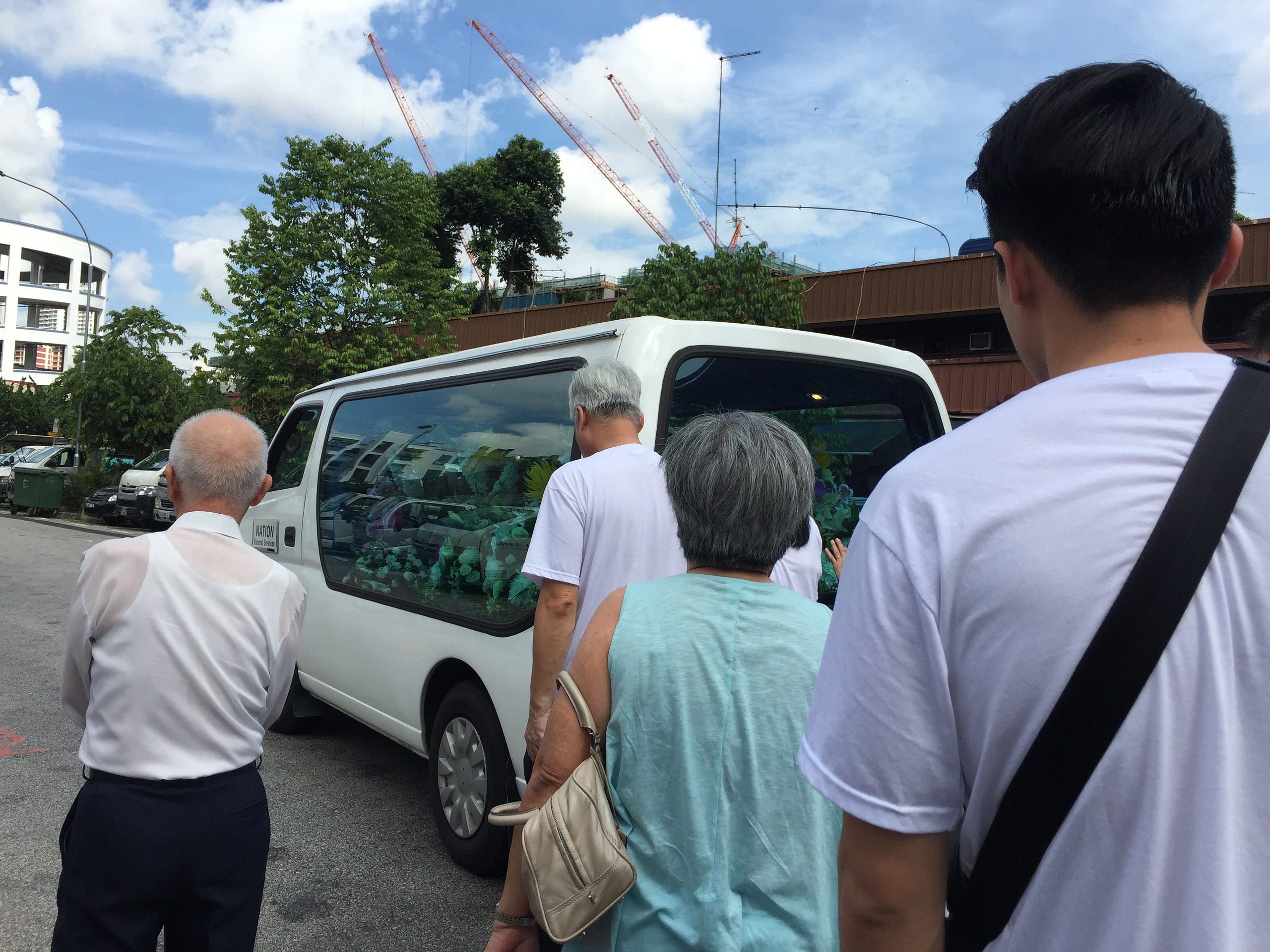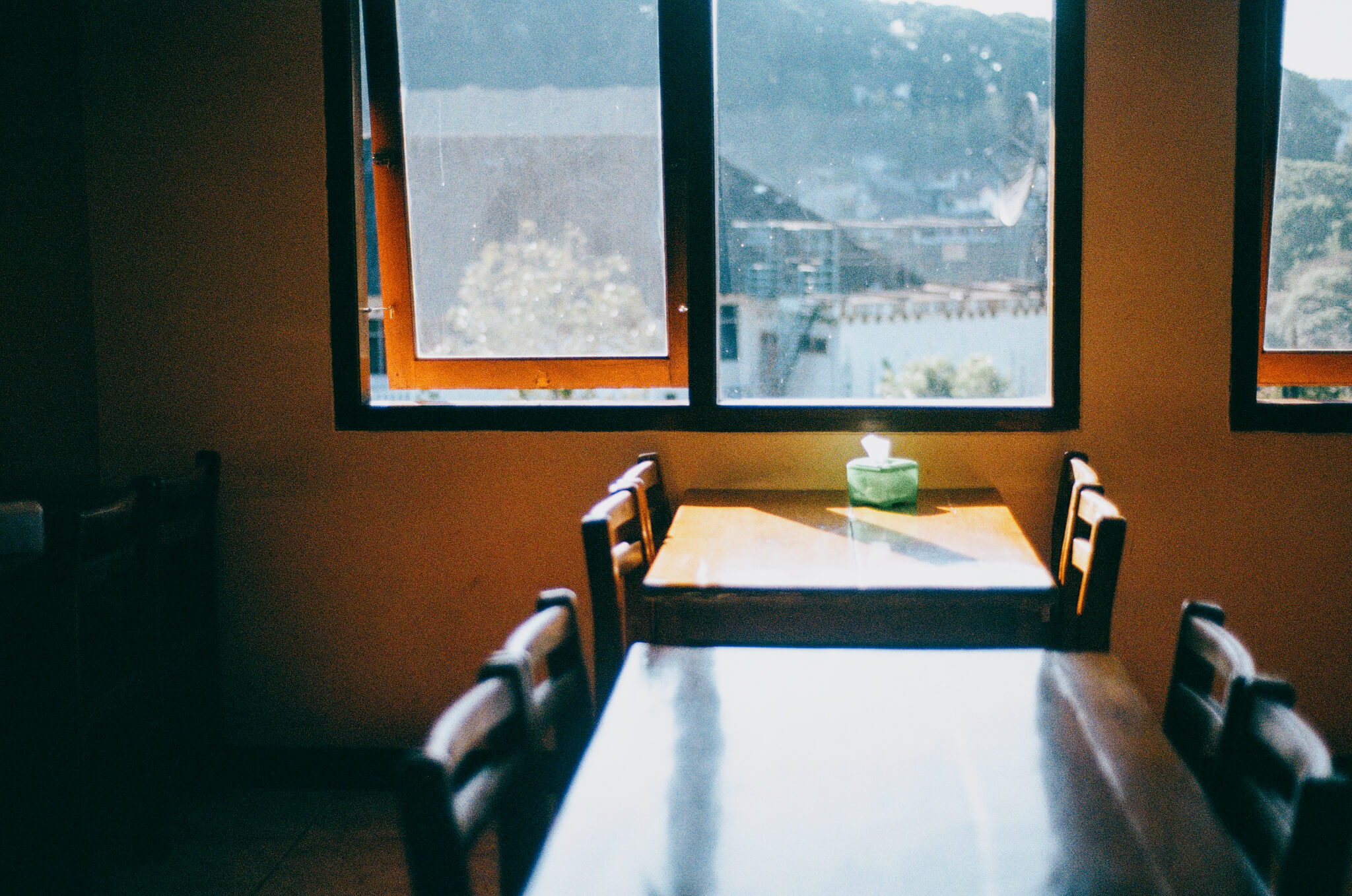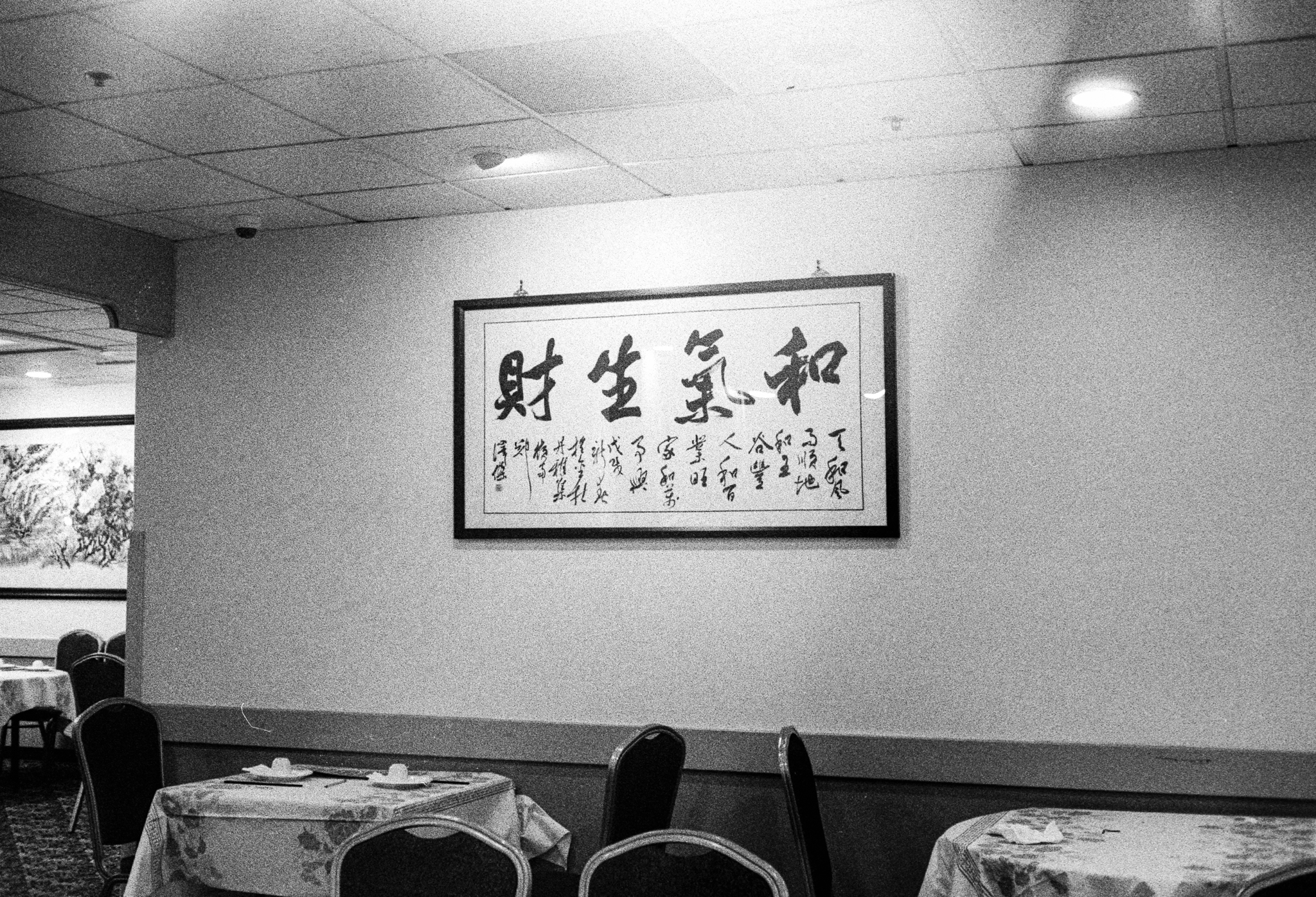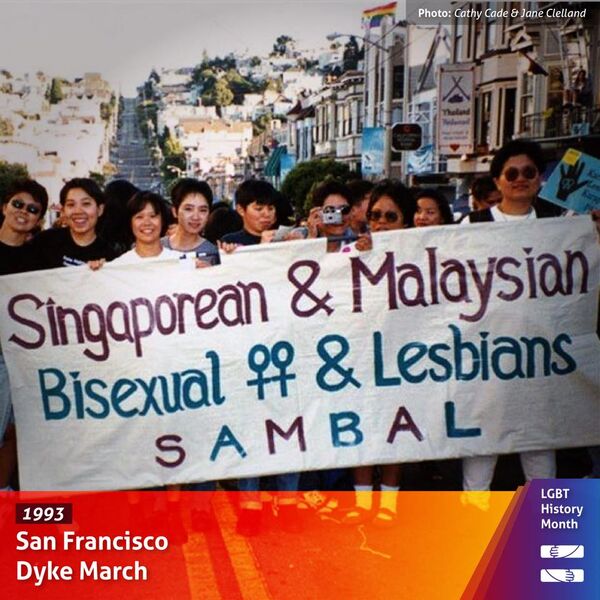 Going to the mountain.
Going to the mountain.
In all of my 29 years, my grandparents had been such a big part of my life that I could have never conceived of a life without them. Like the 1128-episode TV serials they watched, Ah Gong and Ah Ma just went on and on.
In the background, their voices blended in with the voices of the Chinese TV stars I loved in the 1980s. In our tiny little flat where my parents, grandparents, brother and I lived, my grandparents and I drank tea, ate porridge, watched bad TV and forged a home together on stuffy Singapore afternoons so humid that the air wore thin. My parents were young parents; their parents even younger. My grandmother became a grandmother at the age of 44. She was also my defender, provider of tasty hot drinks, and full-time worrier: the act of not eating rice, at any time (even after lunch), was grounds to bring on DEFCON 1. No possibility of relenting until I had eaten another bowl of rice. This would repeat every hour.
I was the weird, silent, brooding grandchild, who said little and spent more time in my head than on the playground.
"I love you, ah girl," she said. "You are my little mouse. So soft, so quiet. I never know what's in that head."
What was in my head was any of the following things:
"I'm going to live in a hut on a farm and make cheese, Ah Ma!" (Much further than going to the moon, for a kid from a country with nowhere to go but the sea and large buildings)
"That sounds fun. Will you make me some?" Ah Ma smiled. She smiled kindly all the time, at everyone, but especially to her grandchildren.
"When I grow up I'm going to travel the world, Ah Ma!"
"That's nice, the world has many people for you to help."
She indulged my fantasies, and believed I could and would do all the things I said I would.
Everything my brother and I did, no matter how small or mundane, made her wide-eyed in wonder.
"Wow! You took a bus home successfully without getting kidnapped! Good job!"
"Wow! You managed to cook instant noodles without causing a fire! Amazing!"
"Wow! The both of you managed to go a week without arguing! Great job, kids!"
If you have kids, I hope you believe unconditionally in everything that they dream of. We do too little of that in spite of our modern accomplishments.
There are certain places where life seems to go on in the way one's forefathers have always lived. Singapore of the '80s was not one of them. My grandparents held different paperwork and nationalities in their lifetimes. My grandfather was a Chinese subject in Sun Yat-Sen's Republic, an illegal immigrant to then-Malaya where he may or may not have been a British subject. He was then, in the 1940s, a Japanese subject in occupied Malaya. With every decade he seemed to switch papers, though not by choice. In the late 1950s, a citizen of newly formed Malaysia, before finally arriving at the citizenship he would take to the grave: a Singaporean, finally, in 1965, at the dawn of the country's birth. Even as a child, I had a vague notion of this: the distance between my parents' lives and mine, was nothing compared to the one between theirs and their parents'.
My grandparents' world was, and still is, a black hole to me. Ah Gong did not like talking about his childhood in China: he did not appear to like it much. Ah Ma did not talk about her younger days in Malaya much; she did not appear to know that modern Singapore and Malaysia are now different countries. To her, home was Clementi, in the western parts of Singapore. Then there was her old home-in Johor, in another country. She just somehow needed a passport now to see her family. Theirs was a life of the tragedies of war, the chaos of a great fire, the unending struggle with poverty. The fear of unknown elements hiding out in dark corners: Ah Gong was attacked on the head with a cleaver once. He survived and did not seem to think much of it, for he never spoke of it. Their world was foreign to me.
To all who came to see me at the home I shared with my grandparents well into my early 20s, my grandparents were a constant presence. No one understood a word of what they were saying. They spoke a specific strain of Teochew with a perfect high pitch, in tones so song-like they seemed to have never left Swatow. If you had come to my house to work on a school project or to eat a meal, you would have only known of my Ah Ma as the kindly lady with a glint of generosity in her eyes, who often chattered at you in a language you had never heard.
I would have translated, "she asks if you would like Milo or coffee? If you'd like to have porridge? What about pork ribs? Noodles?"
It was as though I shared a secret language with my grandparents, the language of Chinese elves (so high-pitched, so strange, so song-like, most of my friends would say I sound like a fairy whenever I spoke to her). In our world, the one I inhabited whenever I spoke this language of elves and fairies with her, it was a world of love, kindness and happiness. I cannot be angry or upset at someone in Teochew, because the only people who spoke it to me taught me only the words of love.
Two weeks ago, my beloved Ah Ma left us after a long battle with dementia in which she degenerated and atrophied tremendously.
When I first learned of the concept of death as a child, I interviewed my family members about their thoughts on death. To my horror, Ah Gong said he hoped, wished, desperately, that Ah Ma would die first.
"How can you be so mean?" I poked his singlet-covered beer belly, before running into my room to cry secretly. The idea of my grandmother dying, even at 5 years old, even as a passing remark, was too much for me to bear. To me, grandma and grandpa just went on and on. They woke up every morning at the same time. They walked for the same amount of time at the same place every morning. They ordered the same food after the same walk. They took the same route home. They peppered their lives of sameness with jokes and tenderness.
When I stood in front of her coffin two weeks ago to say a few words about her, I, of course, broke down. Ah Gong, who once said he hoped she died before he did, had in fact been astute and well-prepared. She slipped away, never to return, after he died a few years ago. He made sure to prepare her funeral portrait, as one of the last things he would do for her.
My grandmother had few friends, I recalled, but she had a world of fans. People came from Malaysia to tell us how she had, as a teenager, refused to let her nephews and nieces go homeless. Despite having not very much, she found them a home. My dad spoke of how, as a child with her as a mother, he was acutely aware of how poor they were. Yet she would make it a point to feed the neighbours' 11 children because their mother had eloped and left home. She had a kind word for everybody, and kinder acts for anyone who needed it.
After gathering myself, I managed to squeak out a few things about her.
I used to be ashamed of my full name, I said. My grandparents gave it to me. It's the sort of name that's so full-on Teochew, so obviously old school, that once you saw it you would immediately know where my family came from.
You're a Teochew girl, aren't you. You sound like you never left the homeland-every time you ask me for fried shallots, I wonder why a little girl like you talks in such a funny, old school way.
That made me hate my name and my accent, but I no longer do.
I did not know my grandparents' names for most of my childhood, I said. I honestly thought their names were Tan Ah Gong and Tan Ah Ma.
Many of my peers in Singapore can barely communicate with their grandparents: the Speak Mandarin campaign coupled with the English-first policy made sure to eradicate any ability to speak the Chinese dialects. I was lucky to have had a window into the world, into my past, through the both of them.
I don't even need a map to know that Swatow's cemetaries were probably on mountains or hills. The language gives it away. The act of taking the body to its final resting place, be it a crematorium or a burial site, is known as chuk sua. Going to the mountain.
So to the mountain, we went. You're supposed to follow the hearse, dressed in white and black, and you're supposed to beat your chest and cry and weep loudly all the way to the mountain. But in super urban Singapore, all that we could do was to follow her for 50 metres to the edge of the carpark, before hopping into a bus to the crematorium.
After the fire.
When Ah Ma was 26 years old, there was a Great Fire near the house. She, along with tens of thousands of people, would run from their homes in search of safety on a hot, infernal afternoon. Ah Gong came scurrying back to the house from por doi to look for them, panicking when he found nothing but ashes. He thought his young bride unprepared and ill-equipped for the dangers of the world. Yet she had demonstrated uncharacteristic resourcefulness: she had been hiding in a temple with their children for hours, picking that place as it was one of the few landmarks left standing after the fire.
After. All that was left of her was a box of bones and ash. We took turns moving her bone fragments into an urn. Parts of her bone fragments had the pigmentation of the various medicines administered to her late in life; they were frail and brittle, just as she had been.
We put her on her shelf. We stared helplessly at her marble engraving. We vacillated between the loving, silly moments with our adorable nieces, and the hopeless sadness that filled us.
My grandma lived 80 years of her life in poverty and in fear. Her hope and her love overcame all of it. All I can hope for is for all of us who have received her unconditional love to carry her with us in the rest of our lives.
That our hearts are large enough to carry the world, because she showed us how.



 Going to the mountain.
Going to the mountain.